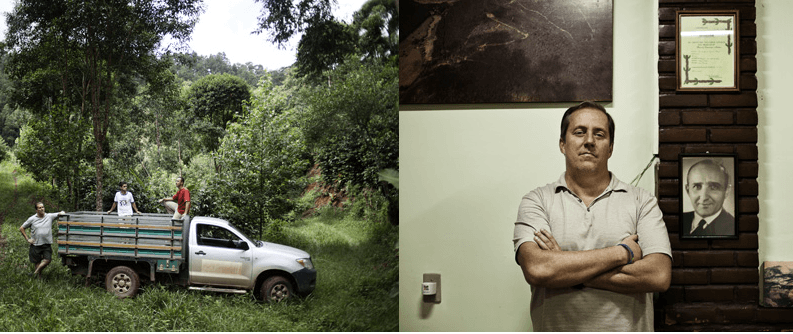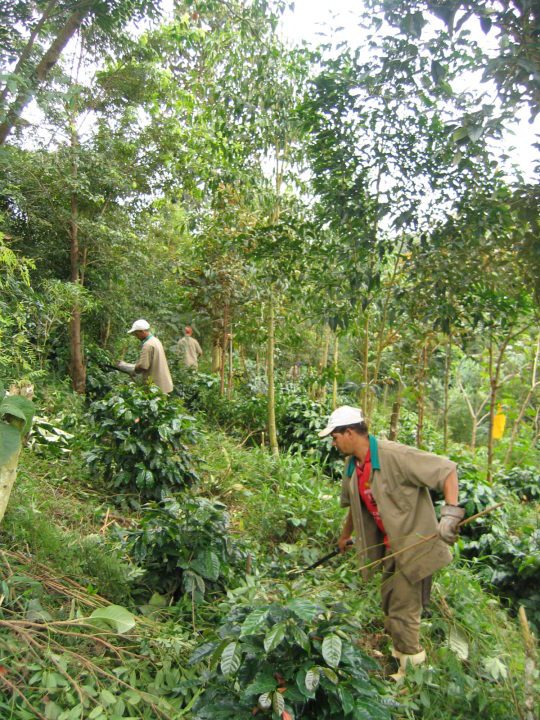Alongside its generous contribution to nature and the environment, Fazenda Camocim represents the essence of what we work for: Long-term partnerships with dedicated coffee producers that we know safeguard the rights of the workers on the farm, as well as the quality of the product they offer.

Ten million good reasons
Fazenda Camocim is beautifully situated in the green-clad mountainous terrain that adorns the Pedra Azul National Park near the east coast of Brazil. The founder of the coffee farm, Sr. Olivar Fontenelle de Araújo, began his work in the 1960s to preserve the land, forest and vegetation that he had grown up with and that had become his livelihood. Araújo managed to plant more than ten million trees during his lifetime. More than 50 years later, his grandson, Henrique Sloper Araujo, has carried on the legacy.
"The work we do on the farm has always been based on the idea of sustainability and preserving the environment. I learned this from my grandfather. He probably planted over 10 million trees and was a pioneer in this field here in Brazil"
Henrique Sloper Araujo
Ancient science

Today, the farm is a prime example of farming in harmony with its surroundings. The focus on sustainability and biodiversity - a rich plant and animal life - has made the introduction of organic and biodynamic methods a natural practice on the farm.
- Biodynamics is about connecting agriculture to cycles in nature. We are very much guided by the biodynamic calendar - the moon phases, stars and zodiac signs. This idea is not new, the science has been practiced by humans for thousands of years. Take Stonehenge, or the ancient Egyptians, or the Incas at Machu Picchu - all these societies were regulated by the equinoxes and the solstice. They lived according to the cycles of the planets and the moon, and were very successful in terms of agriculture long before humans had access to any kind of technology.
"This idea is not new, science has been practiced by humans for thousands of years."
Biodynamics in simple terms
While organic farming has become a term that more and more people know the meaning of, biodynamics is still uncharted territory for most of us. For Henrique, it was a natural extension of the organic methods he introduced back in the late 90s. In simple terms, it's about linking agriculture to cycles in nature to achieve the highest possible quality of soil and crop. To achieve this, it is essential to preserve and improve biodiversity on the farm. Therefore, everything from fruit trees to plants and herbs have been planted. The aim is to create a unique, self-sustaining ecosystem that benefits the coffee trees, as well as other plant and animal life. Both biodynamic and organic certifications come with strict rules - from crop rotation and the use of animal manure, to a ban on chemicals and fertilizers. For Henrique and the other workers on the farm, these are not seen as requirements, rather a natural part of interacting with their surroundings.